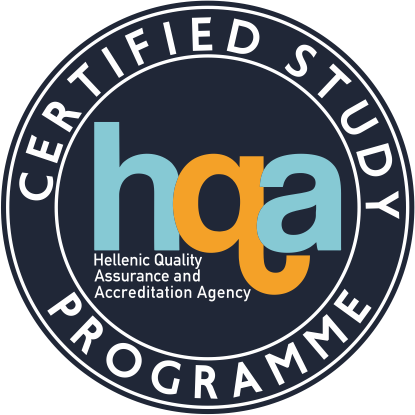| School |
Natural Sciences |
Academic Unit
|
Geology Department |
Level of Studies
|
Undergraduate |
Course Code
|
GEO_408 |
| Εξάμηνο σπουδών |
4ο |
Course Title
|
Sedimentology |
Independent Teaching Activities
|
Lectures, Laboratory Work, Fieldwork |
Weekly Teaching Hours
|
2(L), 2(LW) |
| Credits |
5 |
Course Type
|
Special background, Skills development |
Prerequisite Courses
|
No |
Language of Instruction & Examinations
|
Greek. Teaching |
Is the Course offered to Erasmus Students
|
No |
| Course Web-Page (URL) |
https://eclass.upatras.gr/courses/GEO337/ |
Learning Outcomes
|
Upon successful completion of this course , the students will be able to:
- Define, explain and summarize the basic sedimentary processes and depositional environments
- Understand the formation processes and the main types of sediments and sedimentary rocks.
- Describe and analyze the main sedimentary structures as well as grain size and particle morphology of clastic sedimentary rocks
|
General Competences
|
Search for, analysis and synthesis of data and information with the use of the necessary technology, working independently |
| Syllabus |
Theory
- Introduction to Sedimentology and stratigraphy
- Clastic and Non- Clastic (chemical and biochemical sedimentation) sedimentary rocks, sandstone, claystone siltstone, conglomarates – Carbonates, evaporites etc
- Processes of transport and sedimentary structures
- Sedimentary depositional environments (alluvial fans, river, deltas ,lakes and lagoons, marine)
- Sedimentary facies and depositional environments analysis
- Borehole stratigraphy and sedimentology
Laboratory
- Grain size distribution and statistical parameters, ternary diagrams
- Palaeocurrents indices and their interpretation (rose diagrams)
- Roundness, spherisity and shape characteristics of grains
- Borehole sedimentology – Log profile (SedLog software)
- Data analysis and Statistical analysis
- Packing proximity
- Facies correlation (fence diagrams, facies maps etc)
|
| Delivery |
- In classroom and in laboratory (face-to-face) and in the field, as well as preparation of field work reports
- Laboratory groups of 30-35 students
|
Use of Information & Communication Technology
|
- Use of Information and Communication Technologies (ICTs) (power point) in teaching
- Support of Learning Process and Dissemination of educational material through the University of Patras e_class platform
|
Teaching Methods
|
| Activity |
Semester workload |
| Lectures (2 conduct hours per week x 13 weeks) |
13*2=26 |
| Laboratory work (2 conduct hours per week x 13 weeks) |
13*2=26 |
| Interpretation and writing of the exercises |
13*2=26 |
| Project preparation |
5*7= 35 |
| Seminar |
3*4= 12 |
| Fieldwork |
16 |
| Total number of hours for the Course |
141 |
|
Student Performance Evaluation
|
Final Exam, written, of increasing difficulty, which may include Multiple choice test, Questions of brief answer, Questions to develop a topic, Judgment questions and Exercise solving.
Students are obliged to attend all scheduled laboratory classes and to deliver all the laboratory exercises, during the semester in order to be able to participate to the final exams.
Marking Scale: 0-10.
Minimum Passing Mark: 5.
Students are obliged to attend all laboratory class and to deliver the results of all exercises.
Maximum number of non delivered laboratory exercises: 2 |
Attached Bibliography
|
Suggested bibliography mainly in Greek:
- Σημειώσεις Μαθήματος Θεωρίας και Εργαστηρίου που παρέχονται σε pdf μέσω e-class.
- Ιζηματολογία, Ψιλοβίκος Εκδόσεις Τζιόλα 358 σελ, Παρέχεται μέσω ΕΥΔΟΞΟΣ
- Sedimentology and Stratigraphy, G. Nichols, 355 σελ. Blackwell publ.
- Related academic journals:
- Sedimentology
- Basin Research
- Quaternary International
|





